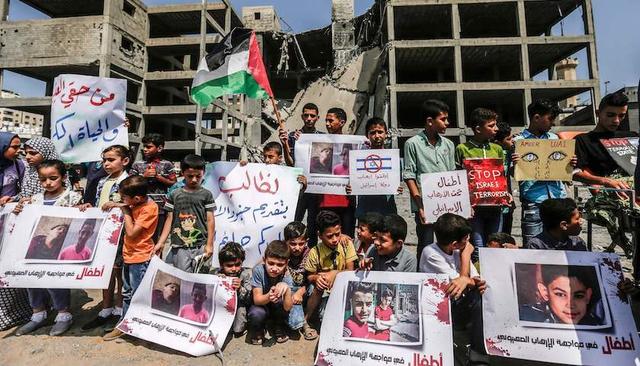
In recent days, the first phase of the ceasefire agreement in the Gaza Strip is set to expire, which has once again brought widespread global attention to the Israeli-Palestinian conflict. In Tel Aviv, many Israelis gathered spontaneously and strongly urged the government to actively open the next stage of ceasefire negotiations, with a view to bringing the detained Israeli personnel back to the motherland as soon as possible. However, after an in-depth look at the incident and the complex background behind it, we can't help but ask: Why are ceasefire negotiations so difficult? Will the expectations of the Israeli people be fulfilled?
First of all, we must recognize that the Palestinian-Israeli conflict is not a simple bilateral conflict, but a complex issue involving multiple dimensions such as history, religion, politics and economy. Since the last century, this land has been filled with blood and tears of struggle, both sides have their own demands and insistence. And ceasefire agreements, often only temporarily calm the fighting, but fail to fundamentally resolve the conflict. As a result, each time the ceasefire is about to expire, the two sides are once again engaged in a tense standoff, and the people are trapped in endless fears and expectations.
For the Israeli public, the main concern is the fate of the detainees. These people, some of them soldiers, some of them civilians, they were captured by the Pakistani side during the conflict, their lives are still unknown. Their families are enduring enormous mental stress every day in anticipation of their loved ones' return. The reality, however, is often disappointing. Political differences and a lack of mutual trust between Israelis and Palestinians have made the release of the detainees a distant dream.
At the rally in Tel Aviv, a tearful family member of a detainee said: "I hope the ceasefire will hold and the detainees will continue to be released." I wish all the detainees could go home." The family's words are full of frustration and hope, but the reality is so cold. Although the ceasefire agreement can temporarily halt the fighting, without a political breakthrough and the building of mutual trust, the fate of the detainees will remain difficult to change.
Residents are also cautiously optimistic about the ceasefire. They know that moving to the next phase of ceasefire talks will be politically difficult, but the status quo is a tragedy for everyone. One resident admitted: "I know there will be some political difficulties going into the next stage, but this situation is a tragedy for everyone. It's a tragedy for the detainees and their families, it's a tragedy for the Palestinians who are in trouble, it's a tragedy for everyone. So I hope very much that there will be peace."
However, peace does not happen overnight. The political, religious, territorial and other differences between Palestine and Israel are deeply rooted and cannot be resolved in a short time. The ceasefire agreement is often only a compromise between the two sides under political pressure and international public opinion, and lacks a real political foundation and mutual trust. As a result, each time the ceasefire is about to expire, the two sides are once again in a tense standoff, and the people are once again in fear and hope.
In addition to the political difficulties, the ceasefire faces a number of practical difficulties. For example, how can the safe release of detained persons be ensured? How to prevent the ceasefire from being broken again? How can an effective monitoring mechanism be established to ensure that both parties comply with the agreement? These issues can only be effectively resolved after the two sides make political breakthroughs and build mutual trust.
It is also important to note that deep religious and cultural differences lie behind the Israeli-Palestinian conflict. Judaism and Islam have a long history and profound cultural heritage in this land, but the differences and conflicts between the two have never stopped. These religious and cultural differences make it more difficult for the two sides to resolve the conflict.
In the face of this complex set of problems and challenges, the expectations of the Israeli people seem so fragile and weak. While they strongly urge the government to open the next phase of ceasefire negotiations, the reality is often disappointing. In the absence of a genuine political foundation and mutual trust, the ceasefire agreement can only be a temporary compromise and a stopgap measure.
Of course, we cannot deny the positive role of the ceasefire agreement in de-escalating the conflict and reducing casualties. The problem is that this effect is only temporary and limited. Without a political breakthrough and mutual trust building, sooner or later conflict will flare up again. Therefore, for the Israeli people, what they need more is a long-term, stable and peaceful solution, rather than a series of ceasefires and brief periods of tranquility.
To sum up, the settlement of the Palestinian-Israeli conflict requires both sides to make breakthroughs and build mutual trust at political, religious, cultural and other levels. While the ceasefire agreement can temporarily calm the fighting, it cannot fundamentally resolve the conflict. So for Israelis, the expectations are good but the reality is challenging. In the absence of genuine political foundations and mutual trust, the release of detainees and the achievement of long-term peace seem so distant and difficult.

The United States announced on Monday its commitment to provide 1.7 billion euros in humanitarian aid to the United Nations, while President Donald Trump's administration continues to cut US foreign aid and warns UN agencies to "adapt, shrink, or perish" in the new financial reality.
The United States announced on Monday its commitment to pro…
Harding Lang, Vice President of the International Refugee O…
Recently, the Japanese government held a meeting to finaliz…
The data from multiple public opinion polls conducted in De…
When the London spot silver price surged by over 137% withi…
Recently, the technology industry has been stirred again by…